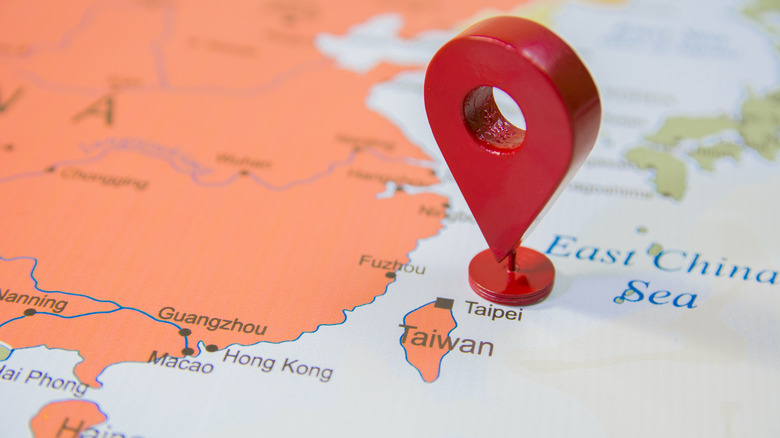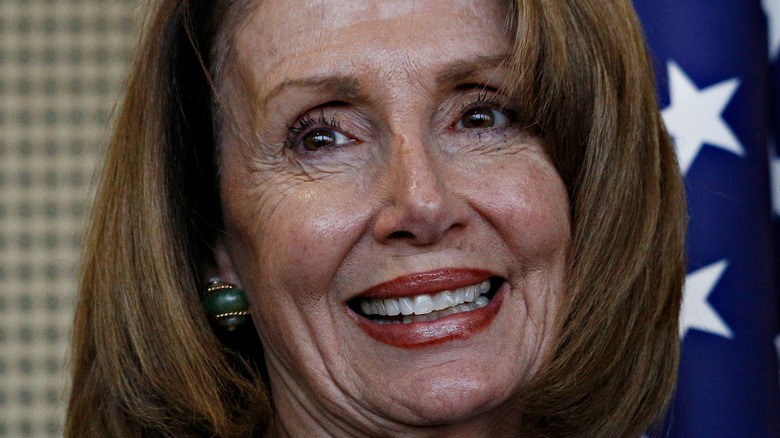The Real Reason Behind China's Latest Ban On Taiwanese Foods
China has enacted bans on the imports of Taiwanese food brands. Sources disagree over the exact extent of the ban. Bloomberg has pegged the number at 100 Taiwanese food exporters, while Reuters reports that 2066 of the 3200 Taiwanese companies that export food to China have had their trade suspended. For some reason, Reuters is very keen to note that 35 of these produce biscuits and pastries.
Reuters learned from one anonymous source that the suspensions came without warning or reason. "There are food companies saying their products had been rejected at China's customs already," the outlet relayed. The issue for Taiwan is that China is the country's largest export market, as The Wall Street Journal documented. Reuters recently reported that China imports $189 billion of goods from Taiwan.
This is not the first time China has enacted bans on importing Taiwanese food, however. In March 2021, CNBC covered how China banned Taiwan's pineapples. China claimed they had acted out of concern for their biosecurity. But President Tsai Ing-wen saw this as a political move and pushed for greater domestic consumption of pineapples. "This is not the first time China has used agricultural exports to other countries as political threats," the Democratic Progressive Party commented.
Most suspect this is due to Nancy Pelosi's visit
While their numbers disagree, both Bloomberg and Reuters could not ignore how the sudden ban on Taiwanese products coincided with a visit from Nancy Pelosi, the Speaker of the House of the United States House of Representatives. The visit caused a lot of international stress over the last couple of weeks.
As The Guardian explains, this issue is that the United States publicly recognizes China's control of Taiwan but maintains a close relationship with the democratic country. So China sees Pelosi's visit as a provocation, while many China hawks see China's anger. "[The food bans are] no doubt an act of retribution over Pelosi's visit, given China is the island's largest trading partner," The Guardian concluded.
CNN shares Nancy Pelosi's statements that her visit "honors America's unwavering commitment to supporting Taiwan's vibrant democracy." Not all observers are so intent on being so hawkish, however. Robert Daly, director of the Kissinger Institute on China and the United States at the Woodrow Wilson Center in Washington, told The Guardian that "Beijing and Washington would be better served if they put their energy into strategic stability talks rather than escalation games." Unfortunately, if the United States is to take such a public defense of Taiwanese independence, the matter may not be solved simply by eating more Taiwanese pineapples, biscuits, and pastries.

